
Overview
The Smart Metering Industry revolves around the deployment and management of advanced metering infrastructure (AMI) systems. Smart meters are digital devices that measure energy consumption in real-time and communicate this data back to utility companies remotely. This technology enables more accurate billing, facilitates demand response programs, and empowers consumers to monitor and manage their energy usage more efficiently. It’s a pivotal component of modernizing energy grids, enhancing sustainability efforts, and enabling the integration of renewable energy sources. The industry encompasses various stakeholders including utility companies, technology providers, regulatory bodies, and consumers, all working together to optimize energy efficiency and reliability in the digital age.
Depending on specific features and functions, GAO Tek’s Lidar Sensors are sometimes referred to as Laser scanners, 3D laser rangefinders, Laser radar, Light detection and ranging sensors, Laser-based distance sensors, Laser mapping devices and Laser imaging systems.
GAO Tek’s Lidar Sensors have the following applications in the Smart Metering industry:
- Asset Management: GAO utilizes LiDAR sensors for precise asset mapping and management within the Smart Metering Industry. By capturing detailed 3D images of infrastructure such as meters, poles, and transmission lines, we optimize maintenance schedules, identify potential faults, and streamline operations.
- Site Surveying: Our team employs LiDAR sensors for rapid and comprehensive site surveys in the Smart Metering Industry. This enables us to assess terrain, identify optimal installation locations for smart meters, and plan network expansions with precision, minimizing costs and deployment time.
- Obstruction Detection: Our LiDAR technology aids in obstruction detection for smart meter installations. By scanning surroundings with high accuracy, we identify potential obstacles such as vegetation or structures that could impede signal transmission or access to meters, ensuring seamless deployment and operational continuity.
- Network Optimization: GAO leverages LiDAR data for network optimization in the Smart Metering Industry. Analyzing terrain and infrastructure characteristics allows us to optimize communication pathways between meters and data collection points, enhancing data transmission efficiency and overall network performance.
- Security Surveillance: Our LiDAR sensors play a role in enhancing security surveillance for smart metering infrastructure. By detecting unauthorized access or tampering attempts with precise object detection capabilities, we ensure the integrity and reliability of the metering system, safeguarding against potential threats.
- Environmental Monitoring: GAO utilizes LiDAR technology for environmental monitoring in the Smart Metering Industry. By capturing detailed topographic data and monitoring changes over time, we assess environmental impacts on metering infrastructure, such as erosion or vegetation growth, and implement proactive measures to mitigate risks and maintain system integrity.
More information on LiDAR sensors and their applications in other industries can be found on this page
This category page lists related products
Systems in The Smart Metering Industry Utilizing LiDAR Sensors
Here are some popular systems in the Smart Metering industry using LiDAR Sensors:
- Smart Meter Installation Planning System (SMIPS):
- Description: SMIPS utilizes LiDAR data for comprehensive site surveys and planning of smart meter installations. It incorporates 3D terrain modeling and obstruction detection to identify optimal locations for meter deployment.
- Software: SMIPS integrates with GIS (Geographic Information System) software such as ArcGIS or QGIS for data analysis and visualization.
- Meter Network Optimization Platform (MNOP):
- Description: MNOP employs LiDAR technology to optimize communication pathways within smart metering networks. It analyzes terrain characteristics and obstruction data to enhance data transmission efficiency.
- Software: MNOP utilizes proprietary network optimization software developed by GAO, integrating LiDAR data with network modeling algorithms for optimal performance.
- Meter Asset Management System (MAMS):
- Description: MAMS utilizes LiDAR sensors for asset mapping and management of smart meter infrastructure. It generates detailed 3D maps of metering assets, facilitating maintenance scheduling and asset tracking.
- Software: MAMS integrates with asset management software solutions such as IBM Maximo or SAP EAM for asset lifecycle management and maintenance planning.
- LiDAR-based Obstruction Detection System (LODS):
- Description: LODS employs LiDAR sensors for real-time obstruction detection during smart meter installations. It scans surroundings to identify potential obstacles such as vegetation or structures that may hinder signal transmission or access to meters.
- Software: LODS utilizes proprietary obstruction detection software developed by GAO, incorporating machine learning algorithms for automated obstruction identification and mitigation.
- Advanced Security Surveillance Platform (ASSP):
- Description: ASSP utilizes LiDAR technology for enhanced security surveillance of smart metering infrastructure. It detects unauthorized access or tampering attempts by monitoring metering sites with high-precision object detection capabilities.
- Software: ASSP integrates with video surveillance software such as Genetec Security Center or Milestone XProtect for real-time monitoring and alerting of security events.
- Environmental Monitoring and Risk Assessment System (EMRAS):
- Description: EMRAS utilizes LiDAR data for environmental monitoring and risk assessment in smart metering installations. It captures topographic data and monitors environmental changes to assess risks such as erosion or vegetation encroachment.
- Software: EMRAS integrates with environmental monitoring software solutions such as ESRI ArcGIS Environmental Systems Research Institute (ESRI) for spatial analysis and risk assessment modeling.
GAO Tek’s targeted markets are North America, particularly the U.S. and Canada.
Complying With Government Regulations
GAO Tek’s LiDAR sensors comply or help our customers comply with the U.S. government regulations such as:
- Federal Aviation Administration (FAA) Regulations
- Environmental Protection Agency (EPA) Regulations
- Department of Transportation (DOT) Regulations
- Federal Trade Commission (FTC) Regulations
- Department of Agriculture (USDA) Guidelines
- Federal Communications Commission (FCC) Regulations
- National Institute of Standards and Technology (NIST) Standards
- Department of Commerce Export Controls
GAO Tek’s LiDAR sensors comply or help our clients comply with the Canadian regulations such as:
- Transport Canada Regulations
- Canadian Food Inspection Agency (CFIA) Regulations
- Environment and Climate Change Canada Regulations
- Privacy Laws and Regulations
- Canadian Radio-television and Telecommunications Commission (CRTC) Regulations
- National Research Council Canada (NRC) Standards
- Export Controls
Case Studies of LiDAR Sensors in The Smart Metering Industry
LiDAR sensors are sometimes called Laser scanners, 3D laser rangefinders, Laser radar, Light detection and ranging sensors, Laser-based distance sensors, Laser mapping devices and Laser imaging systems.
Here are some practical examples of using LiDAR sensors in the Smart Metering Industry:
- City-wide Smart Meter Deployment Planning in New York City: LiDAR sensors were used to conduct comprehensive site surveys for planning the deployment of smart meters across New York City. The data collected helped identify optimal locations for meter installations, considering factors such as terrain and obstruction detection.
- Utility Network Optimization in Boston, Massachusetts: LiDAR technology was utilized to optimize communication pathways within the smart metering network in Boston. By analyzing terrain characteristics and obstruction data, the utility company improved data transmission efficiency and network reliability.
- Rural Smart Meter Deployment Strategy in Iowa: LiDAR sensors were employed to develop a deployment strategy for smart meters in rural areas of Iowa. The data collected facilitated accurate planning of meter installations, taking into account terrain variations and accessibility challenges.
- Suburban Grid Enhancement Project in Chicago, Illinois: LiDAR technology was used to assess the suburban grid infrastructure in Chicago for smart meter integration. Detailed 3D mapping helped identify potential obstacles and optimize the placement of meters for enhanced network performance.
- Coastal Smart Meter Resilience Project in Florida: LiDAR sensors were utilized to assess the resilience of smart meter infrastructure along the coastal regions of Florida. The data collected enabled the utility company to identify vulnerable areas and implement measures to mitigate risks posed by hurricanes and flooding.
- Urban Redevelopment Smart Meter Integration in Atlanta, Georgia: LiDAR technology played a key role in integrating smart meters into urban redevelopment projects in Atlanta. Precise site surveys helped navigate complex urban environments and optimize meter placement for efficient data collection.
- Mountainous Terrain Smart Meter Deployment in Colorado: LiDAR sensors were deployed to plan smart meter installations in mountainous terrain in Colorado. The data collected facilitated accurate assessment of elevation changes and obstruction detection, ensuring successful deployment in challenging environments.
- Renewable Energy Integration Project in California: LiDAR technology was used to support the integration of renewable energy sources into the smart metering infrastructure in California. Detailed mapping of solar and wind resources helped optimize energy generation and distribution in the region.
- Remote Community Smart Metering Initiative in Northern Canada: LiDAR sensors were employed to plan a smart metering initiative in remote communities in Northern Canada. The data collected facilitated accurate site surveys and deployment planning, addressing unique challenges such as harsh weather conditions and limited accessibility.
- Grid Modernization Project in Ontario: LiDAR technology played a crucial role in a grid modernization project in Ontario, Canada. Detailed mapping of the existing infrastructure helped optimize the integration of smart meters and improve the overall efficiency and reliability of the grid.
GAO RFID Inc. RFID Hardware, a sister company of GAO Tek Inc., is ranked as a top 10 RFID supplier in the world. Its RFID, BLE, and IoT products have also been widely used in the Smart Metering industry. Articles about related industries are given below:
Use of LiDAR Sensors With Leading Software And Cloud Services in The Smart Metering Industry
GAO Tek has used or has facilitated its customers to use GAO’s LiDAR Sensors with some of the leading software and cloud services in their applications. Examples of such leading software and cloud services include
Application Software:
- Esri ArcGIS
- Autodesk AutoCAD Civil 3D
- Bentley Systems MicroStation
- Leica Cyclone
- Trimble RealWorks
- RIEGL RiPROCESS
- Topcon MAGNET Collage
- Optech LMS LiDAR Processing Software
Cloud Services:
- Amazon Web Services (AWS)
- Microsoft Azure
- Google Cloud Platform (GCP)
- IBM Cloud
- Oracle Cloud Infrastructure (OCI)
GAO Tek’s LiDAR Sensor and their applications in other industries are listed on this page,
LiDAR Sensor Other related products can be found at this category page, IoT
Meeting Customers’ Demands
Large Choice of Products
In order to satisfy the diversified needs of their corporate customers, GAO Tek Inc. and its sister company GAO RFID Inc. together offer a wide choice of testing and measurement devices, network products, RFID, BLE, IoT, and drones.
Fast Delivery
To shorten the delivery to our customers, GAO has maintained a large stock of its products and is able to ship overnight within the continental U.S. and Canada from the nearest warehouse.
Local to Our Customers
We are located in both the U.S. and Canada. We travel to customers’ premises if necessary. Hence, we provide a very strong local support to our customers in North America, particularly the U.S. and Canada .
Furthermore, we have built partnerships with some integrators, consulting firms and other service providers in different cities to further strengthen our services. Here are some of the service providers in the Supply Chain Visibility we have worked with to serve our joint customers:
- Accenture
- Bain & Company
- Booz Allen Hamilton
- Boston Consulting Group (BCG)
- Capgemini
- CGI Group
- Cognizant
- Deloitte
- Ernst & Young (EY)
- IBM Global Services
- KPMG
- McKinsey & Company
- PricewaterhouseCoopers (PwC)
- TELUS
GAO has Many Customers in The Smart Metering Industry
The products from both GAO Tek Inc. and GAO RFID Inc. have been widely used in Autonomous Vehicles Industry by many customers, including some leading companies. Here is more information on applications of GAO RFID Inc.’s products in the:
Here are some of GAO’s customers in the Supply Chain Visibility:
- Alabama Power
- Ameren Corporation
- Avangrid
- BluJay Solutions
- Central Maine Power (CMP)
- ComEd (Commonwealth Edison)
- Con Edison
- Eversource Energy
- GT Nexus (now Infor Nexus)
- Gulf Power Company
- Manitoba Hydro
- National Grid
- New York Power Authority (NYPA)
- PSEG Long Island
- SaskPower
- Southwestern Electric Power Company (SWEPCO).
- Tennessee Valley Authority (TVA)
- United Illuminating (UI)
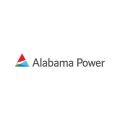
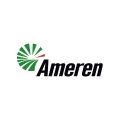
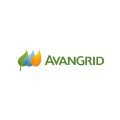


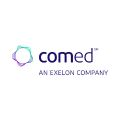
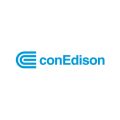
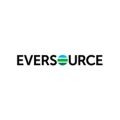
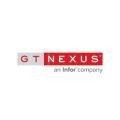
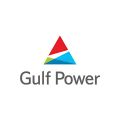
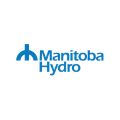
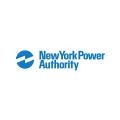
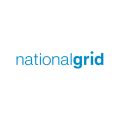


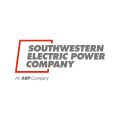

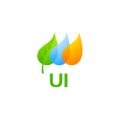
Contact Us
Here are GAO Tek’s LiDAR Sensor
We ship overnight to anywhere on continental U.S. and Canada from one of our local warehouses.
If you have any questions about our products or want to place an order, our technical experts can help you.
Please fill out this form or email us
